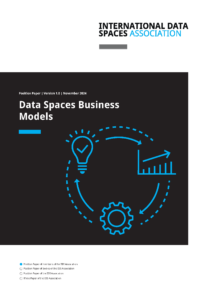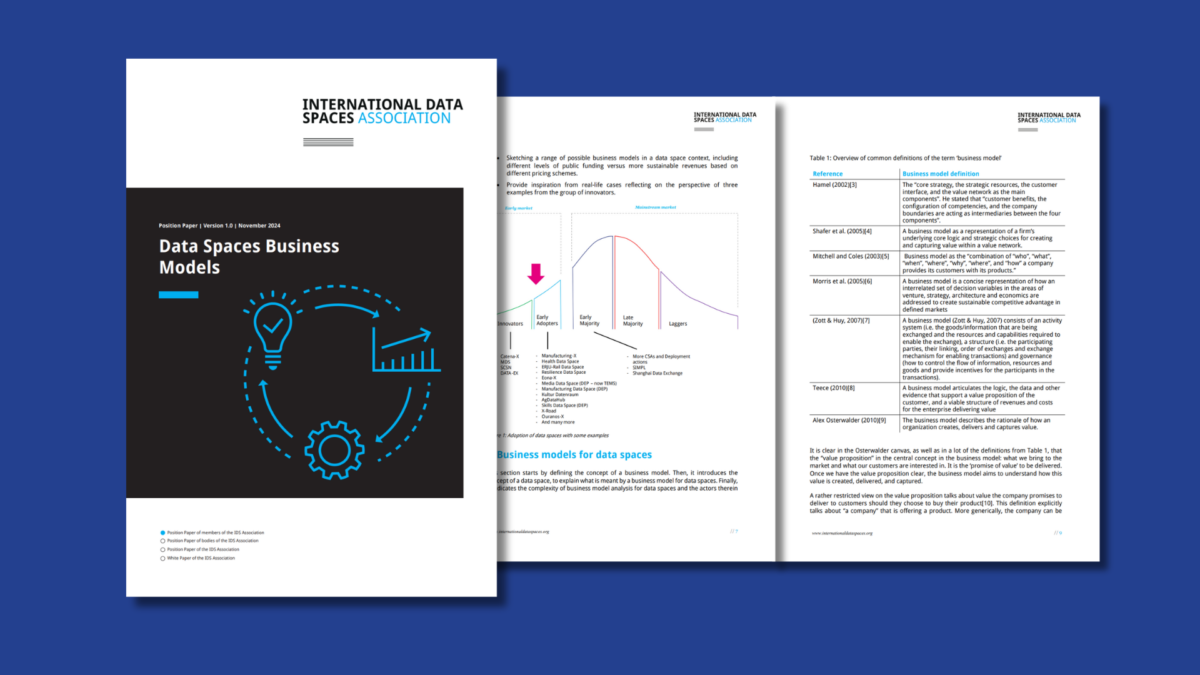The International Data Spaces Association (IDSA) has recently published the position paper Data Spaces Business Models, a collaborative effort led by Sophie Verbrugge, associate professor at University Ghent. The paper features contributions from data space experts imec, Capgemini, Mobility Data Space, T-Systems, Fraunhofer ISST, TNO, and novatrust.
The position paper explores the complexities of data space business models.
“By focusing on collaboration, multi-sided value creation, and adaptability, it provides actionable insights for everyone looking to develop effective and sustainable business perspectives for their data space activities.”
Christoph Mertens, Head of Adoption at IDSA
Delivering value through collaboration
Data spaces bring together diverse stakeholders, including data providers, consumers, infrastructure operators, and intermediaries to enable seamless data exchange. Unlike traditional business models, their success depends on aligning these actors’ interests to create a collaborative and mutually beneficial ecosystem.
The core promise of any data space is its ability to facilitate secure and sovereign data sharing, enabling joint value creation. This is achieved through targeted use cases, such as improving supply chain transparency in the automotive industry or optimizing public transport in the mobility sector.
Data space business models thrive on collaboration and a multi-sided structure. Their value grows as more participants join, like platform business models where the presence of one group enhances the value for another. Data space business models evolve. Many start with public funding to establish operations but gradually transition to self-sustainability by developing revenue streams tied to their demonstrated value.
Real-world applications
The authors of the paper analyzed three data space initiatives with the presented business model framework to shade some light on these three diverse approaches:
- Mobility Data Space (MDS): A German initiative advancing innovative mobility solutions through community-building and strong public-private collaboration.
- Catena-X: A data space for the automotive sector, balancing regulatory compliance with economic sustainability by innovating its pricing models.
- Smart Connected Supplier Network (SCSN): A Dutch initiative showcasing scalable data sharing in manufacturing supply chains, driving efficiency and innovation.
Beyond economic impact
Many data spaces aim to deliver societal benefits, such as improved public services, enhanced urban planning, or environmental sustainability. These objectives often justify public funding, which can help data spaces gain traction and eventually achieve self-sustainability.
As data spaces mature, they hold the promise of transforming data exchange and driving innovation across sectors.









